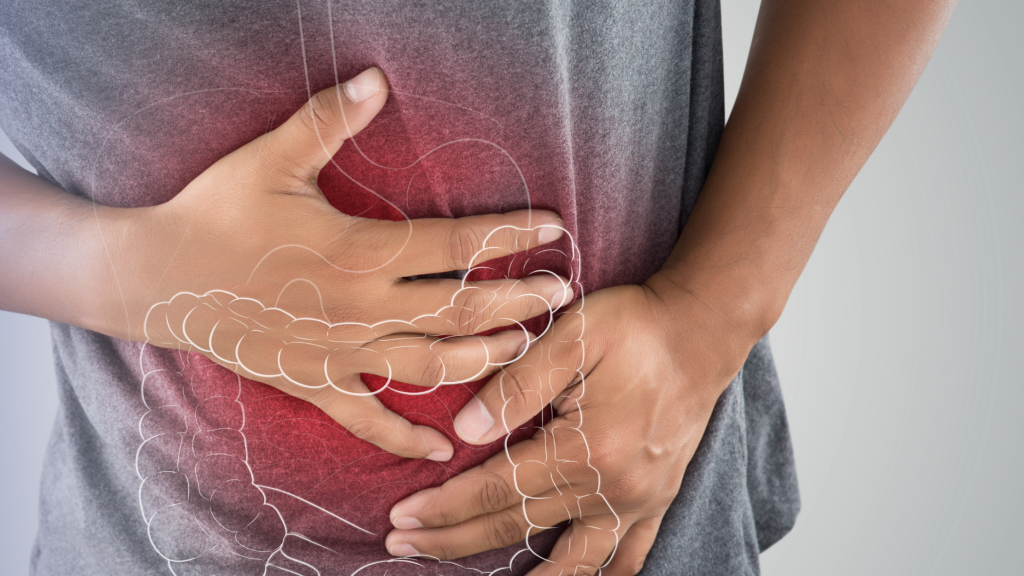
Waking up with heartburn: Why It happens and how to manage it
Waking up with heartburn is hardly the ideal way to start the day. It’s frustrating, uncomfortable, and can leave you feeling out of sorts before you’ve even had your morning coffee. If you’re occasionally waking up to heartburn, you’re not alone. It’s a common issue8 and understanding why it happens is the first step toward finding relief.
Morning heartburn isn’t just a random occurrence. It’s often tied to the things we eat, when we eat them, and even how we sleep. Late-night snacks, certain foods, or lying down too soon after eating can all contribute to morning reflux for some of us. These habits can allow stomach acid to float into the oesophagus, leading to that uncomfortable feeling when you wake up.
But here’s the good news: by recognising your common triggers, you can take steps to manage it. In this article, we’ll explore the reasons behind waking up with heartburn, share practical tips that may help to reduce your symptoms and discuss when it might be time to consult a healthcare professional. Whether you’re experiencing occasional discomfort in the morning or waking up in the middle of the night with heartburn, you’ve come to the right place to learn more.
Why am I waking up to heartburn?
If you’re waking up with heartburn, that burning sensation in your chest or that bitter taste lingering in your mouth can be an unwelcome alarm clock. But why does it happen, and more importantly, what can you do about it?
What causes heartburn in the morning?
Eating Before Bed
Late-night meals or snacks can lead to morning heartburn. When you lie down soon after eating, it’s easier for stomach acid to float into the oesophagus. 1 Take a look at our guide to late night snacks for some options that’ll help keep your stomach smiling all through the night.
Dietary Triggers
Foods like spicy dishes, acidic fruits, fatty meals, and caffeinated drinks can all contribute to waking up with heartburn.2 Identifying and managing these triggers can make a big difference.
Pregnancy
Hormonal changes and pressure on the stomach can cause heartburn, especially in the morning.3 Take a look at the Heartburn During Pregnancy guide for more information.
Weight Gain:
Carrying excess weight around the abdomen can put pressure on the stomach, potentially increasing the likelihood of acid reflux.4
Exercise Timing:
Avoid high-impact workout routines and eating before exercise.5
Medications:
Certain medications can relax the lower oesophageal sphincter, allowing stomach acid to float into the throat and cause heartburn.6 Talk to your doctor to learn more.
By understanding these triggers, you can start making small lifestyle adjustments that may help reduce heartburn in the morning.
What does morning heartburn feel like?
If you’ve ever woken up with heartburn, you know exactly how uncomfortable it can be. The classic symptoms include that familiar burning sensation in the chest, a bitter or sour taste in your mouth, and sometimes even a sore throat. These symptoms can leave you feeling unsettled, and in some cases, they may even linger throughout the morning and make the rest of your day less manageable. Other heartburn symptoms can also occur alongside these uncomfortable feelings, contributing to your discomfort.
But why can morning heartburn feel so much worse? There are a few reasons behind the intensified discomfort:
- Reduced saliva production: Overnight, our bodies produce less saliva, which normally helps neutralise stomach acid. With less saliva to protect your oesophagus, the acid can irritate it more easily, making that burning sensation feel more intense.7
Tip: Drink water as soon as you wake up to rehydrate your body and stimulate saliva production.16 Chewing gum after meals can also help promote saliva flow, which may neutralise acid and protect your oesophagus.17 - Decreased swallowing: While asleep, we swallow less frequently, which normally helps push acid back down into the stomach.7
- Lying flat: When you lie down, gravity no longer helps keep stomach acid in the stomach. This allows acid to float into the oesophagus, leading to heartburn discomfort that can be particularly harsh when you wake up.7
Tip: Elevating the head of your bed by 6 to 8 inches can help keep acid in the stomach.18 Alternatively, propping up your upper body with extra pillows can help prevent acid from rising while you sleep.
Understanding the root causes can give you actionable steps that may help you to manage morning heartburn more effectively, helping to reduce discomfort and start your day feeling like yourself!

Tips for reducing the chance of waking up to heartburn
Managing morning reflux and heartburn often comes down to making small but impactful changes to your lifestyle and diet. While these adjustments may not eliminate your symptoms, they can go a long way in reducing discomfort and improving your digestive health over time. Here are some practical tips that may help if you’re waking up to heartburn:
- Adjust meal timing: Eating late at night can trigger heartburn, especially if you eat right before bed.9
Tip: Try to avoid eating at least 2-3 hours before lying down. This gives your stomach time to digest and helps prevent acid from rising into the oesophagus while you sleep. - Watch your diet: Certain foods can be more likely to trigger heartburn for some, especially in the morning.2
Tip: Limit or avoid acidic foods which can contribute to heartburn. Instead, opt for lighter meals that are easier on your digestive system, such as lean proteins, whole grains, and vegetables. - Stay hydrated: Dehydration can worsen heartburn symptoms, so it's important to drink enough water throughout the day.10
Tip: Drink water throughout the day to stay hydrated and help your digestive system function smoothly. - Exercise wisely: Regular exercise is beneficial for overall health, but the timing and type of exercise matter when managing heartburn.3
Tip: Avoid vigorous exercise immediately after meals, as this can trigger heartburn. Instead, aim for moderate activities like walking or swimming, and try to leave at least 1-2 hours between eating and exercise. - Optimise your sleep: Poor sleep habits can contribute to heartburn symptoms, as can lying down too soon after eating.11
Tip: Establish a consistent sleep schedule and aim for 7-9 hours of sleep each night.
Additionally, try to sleep on your left side, as this position can reduce acid reflux compared to sleeping on your back or right side.
Integrating these tips into your daily routine, can help you manage morning reflux and heartburn more effectively and help improve your overall wellbeing.
How to relieve morning reflux and heartburn
If you occasionally find yourself waking up with heartburn, relief could be possible for some with the right approach. While lifestyle adjustments can help reduce the frequency of symptoms, there are also effective ways to relieve discomfort when heartburn strikes in the morning.
Antacids for rapid relief
For those moments when heartburn disrupts your morning, antacids can help by neutralising excess stomach acid. Quick-Eze® is an antacid that starts working as soon as it dissolves, helping to relieve the burning sensation in your chest. Available in chewable tablets. Quick-Eze® provides a convenient way to ease discomfort when needed.
Additional approaches for managing morning heartburn
- Drink water: Sipping water first thing in the morning can help wash acid back down into the stomach.10
- Try a small heartburn friendly snack: Eating a small, non-acidic snack, such as plain toast or a banana.15
- Loosen clothing: Tight waistbands can put pressure on the stomach, worsening reflux.12
- Avoid Lying down immediately: Staying upright for at least 30 minutes after waking up can prevent acid from lingering in the throat.13
For a deeper look at different heartburn relief options, check out Different Heartburn Treatments.
When to see a doctor for morning reflux
While occasional morning heartburn is common, persistent or intense symptoms shouldn’t be ignored. Consulting a healthcare provider can help rule out more serious conditions and provide a tailored treatment plan. Consider seeking medical advice if:
- Home remedies aren’t working: If lifestyle changes and over-the-counter solutions don’t provide relief and symptoms persistent symptoms.
- Symptoms Are Worsening: If your heartburn becomes more frequent or intense, or if you’re experiencing other symptoms like:
- Difficulty swallowing or a feeling of food getting stuck in the throat.
- Unexplained weight loss
- nausea or vomiting
- Chronic cough, hoarseness, or sore throat14
It’s always better to be cautious and seek expert advice if you’re concerned about your symptoms. A healthcare provider can help identify the cause and recommend appropriate treatment options.
Finding relief from morning reflux
Navigating the challenges of morning heartburn can feel overwhelming, but with the right approach, you may be able to take control of your mornings. Whether you’re changing your diet, adjusting your sleep habits, or reaching for an antacid like Quick-Eze®, finding what works best for you is key.
Remember, managing heartburn is a personal journey. What works for someone else might not be the right solution for you – and that’s okay. The important thing is to stay proactive and keep exploring different strategies until you find your balance.
You’re not alone in this – take the first step today and discover the difference these tips and lifestyle changes can make.
Waking up with Heartburn FAQs
How to get relief from heartburn in the morning.
To relieve morning heartburn, consider using fast-acting antacids like Quick-Eze®, which can help neutralise stomach acid. Additionally, try drinking a glass of water to help wash acid back down into the stomach. Eating a light, non-acidic breakfast also helps soothe irritation and other lifestyle changes such as adjusting your sleeping position or avoiding late-night meals may also help.
What causes heartburn in the morning?
Morning heartburn is often caused by stomach acid floating into the throat while lying down.8 This can be triggered by eating close to bedtime, consuming acidic or fatty foods, caffeine, or certain medications. Other contributors include pregnancy, weight gain, or even the way you sleep.8 Understanding your personal triggers can help you take steps to reduce morning reflux.
Is it normal to wake up with heartburn?
Waking up with heartburn can happen, especially if you eat late at night or consume foods that trigger acid reflux.8 Lying flat reduces the effects of gravity, making it easier for stomach acid to float into the throat. However, if morning heartburn starts to become more frequent or becomes intense it’s a good idea to consult a healthcare professional.
How to avoid acid reflux in the morning.
To reduce the chances of waking up with heartburn:
- Avoid eating large meals or acidic foods within 2-3 hours before bedtime.
- Elevate the head of your bed to keep stomach acid from floating into the throat.
- Sleep on your left side, which can help reduce acid reflux.
- Limit caffeine and carbonated beverages, which can trigger heartburn.
- Maintain a healthy weight and avoid tight clothing around the waist.8
References
[1] https://www.webmd.com/heartburn-gerd/ss/slideshow-heartburn-at-night
[2] https://www.healthline.com/health/gerd/foods-to-avoid
[3] https://www.healthline.com/health/pregnancy/heartburn-during-pregnancy
[4] https://www.healthline.com/health/gerd/weight-loss
[5] https://www.healthline.com/health/digestive-health/acid-reflux-exercise
[6] https://www.medicalnewstoday.com/articles/medications-causing-heartburn
[7] https://www.sleepfoundation.org/physical-health/gerd-and-sleep
[8] https://www.healthline.com/health/acid-reflux-in-the-morning
[9] https://pubmed.ncbi.nlm.nih.gov/16393212/
[10] https://arizonapremiersurgery.com/2024/06/13/drinking-water-to-help-with-acid-reflux/
[11] https://health.clevelandclinic.org/why-does-your-heartburn-always-seem-worse-at-night
[12] https://www.healthline.com/health/gerd/heartburn-relief
[13] https://www.health.harvard.edu/staying-healthy/11-stomach-soothing-steps-for-heartburn
[14] https://www.webmd.com/heartburn-gerd/understanding-heartburn-basics
[15] https://www.webmd.com/digestive-disorders/features/foods-that-fight-heartburn
[16] https://www.healthline.com/nutrition/drinking-water-in-the-morning
[17] https://www.dentalhealth.org/sugar-free-chewing-gum#:~:text=Chewing%20sugar%2Dfree%20gum%20for,replace%20the%20minerals%20more%20quickly.
[18] https://www.healthcentral.com/digestive-health/acid-reflux-elevate-bed






